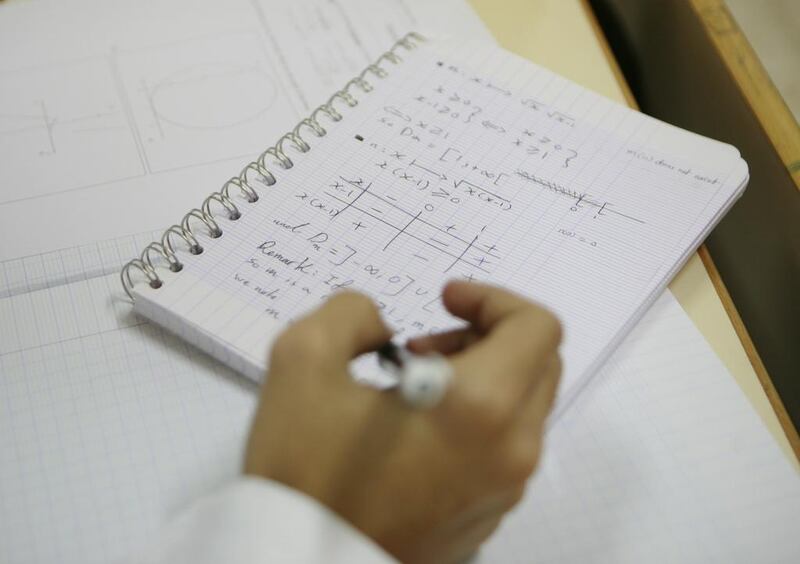DUBAI // The UAE has the highest quality schools in the Middle East and North Africa, a report says.
But education experts warn that teaching must move away from rote learning and towards developing critical thinking.
The report was published by the Organisation for Economic Cooperation and Development and is based on a range of test scores. On a global level, the UAE came 45th out of 76.
“The reason the UAE is ranked at 45 is because, for the most part, children in schools here learn by rote,” said Judith Finnemore, managing consultant for Education Consultancy and School Improvement in Al Ain.
“We need to get away from this textbook-based method of learning and focus instead on problem solving and analytical skills.
“What you tend to find is that pupils taught in many of the schools here are able to memorise a date or some information, but when they are confronted with a question in one of these tests that requires them to look at it in a more analytical mind frame, they can’t do it.”
The top five places in the OECD report were dominated by Asian countries, with Singapore ranked first. Ghana was last on the list.
The report was based on a mix of international tests, including the Programme for International Student Assessment (Pisa), and the Trends in International Mathematics and Science Study (Timss).
It revealed that just over 40 per cent of pupils in the UAE were not meeting the basic level of skill in mathematics and science.
The report estimates that the UAE could increase its gross domestic product by 24 per cent by 2095 if pupils increased their Pisa score by 25 points.
Clive Pierrepont, director of communications for education group Taaleem, said the UAE’s ranking was skewed due to the range of different curriculums. Taaleem runs 10 schools across Dubai.
“When you look at the results of the international schools in the UAE, they are ranked right up there with some of the best schools in the world,” Mr Pierrepont said.
“Our schools do well in the Pisa and Timss tests and it is something that we take very seriously.”
But he agreed more needed to be done to teach children in a way that would arm them with the knowledge and skills they would need to be successful in the world of work.
“There does need to be more focus on teaching pupils how to use deeper thinking,” Mr Pierrepont said.
“The choice for parents, particularly in Dubai, is greater than ever and if they are not happy with the quality of education their child is receiving, they can shop around for something better.”
He was positive that the UAE would improve its ranking in the coming years.
“The political will is there and it’s something that we are striving for,” Mr Pierrepont added.
Inspectors found that private schools’ level of preparedness to meet their targets was varied and called for more improvements.
The Knowledge and Human Development Authority, Dubai’s education regulator, stressed the importance of Pisa and Timss tests in its latest Dubai school inspection report published earlier this week.
Regionally, Iran ranked 51st, Bahrain 57th, Lebanon 58th, Jordan 61st, Tunisia 64th, Saudi Arabia 66th, Qatar 68th, Oman 72nd and Morocco 73rd.
The OECD’s full report will be presented at the World Education Forum in South Korea next week.
nhanif@thenational.ae






